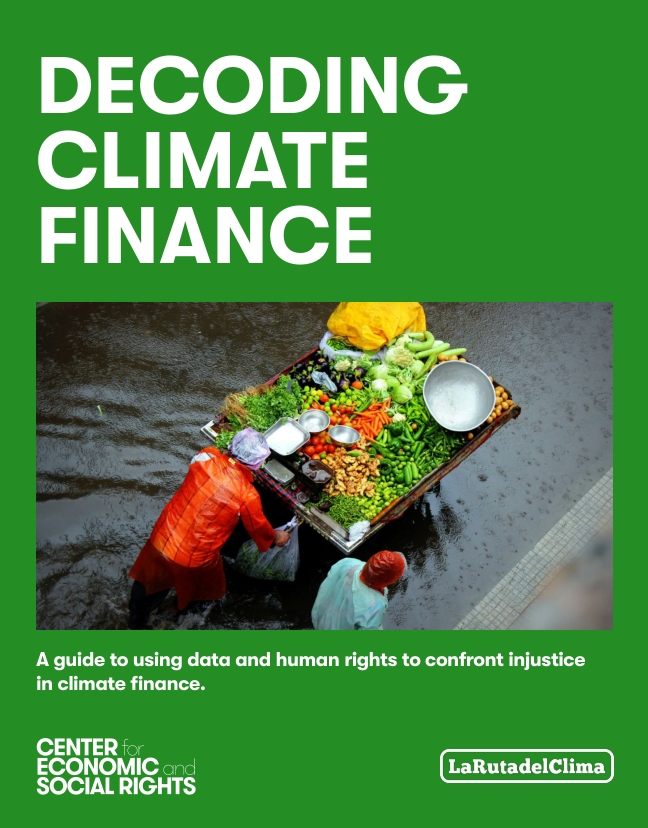A guide to using data and human rights to confront injustice in climate finance
The global climate finance system is failing the very people it claims to serve. While communities are flooded, displaced, and stripped of their livelihoods, the money meant to support them remains inadequate, unjustly distributed, and tied up in debt and extraction. Climate finance is not just about money, it is about power. The rules that decide who pays, who benefits, and who decides are rooted in colonial exploitation, corporate impunity, and unequal governance. To win climate justice, these rules must be challenged and transformed.
What’s inside
Decoding Climate Finance is part of our Decoding Injustice series, which equips activists, researchers, and advocates with the tools to unpack complex systems of economic oppression and demand change. Co-produced by CESR and La Ruta del Clima, this resource is structured around three steps:
-
Interrogate: Dig into the systems, structures, and power relations that shape global climate finance, and who they benefit.
-
Illuminate: Use data, storytelling, and community knowledge to expose the injustices embedded within climate finance decisions.
-
Inspire: Propose bold alternatives that put human rights, justice, reparations, and inclusive development at the center of climate finance.
This guide builds on Decoding Debt Injustice and Decoding Gender Injustice. It explains why climate finance is a human rights issue, shows how to use indicators and benchmarks to measure injustice, and offers strategies for advocacy that can shift power. It also demonstrates how just climate finance could expand access to healthcare, strengthen education systems, support resilient livelihoods, and unlock renewable energy transitions, bringing concrete benefits that reduce poverty and build long-term resilience in the Global South.
Decoding Climate Finance is designed for those fighting on the frontlines of climate injustice, whether exposing fossil fuel subsidies while communities go without clean water, tracking resources lost to corporate tax abuse that could otherwise fund social protection, or pushing for gender and racial justice in climate policy.
Why it matters
A just response to the climate crisis is not only necessary, it is possible. Decoding Climate Finance equips movements to demand it: using the power of human rights to reimagine and rebuild climate finance from the ground up, creating pathways to sustainable development and dignity for all.
Special thanks to
We are especially grateful to Adrián Martínez Blanco, Adriana Vásquez Rodríguez, and Jennifer Rojas Valverde from La Ruta del Clima for their thoughtful co-drafting, feedback and guidance throughout the writing process. We also thank Adessou Kossivi (GNDR), Ann Harrison (Amnesty International), Friederike Strub (Recourse), Katie Tobin (WEDO), and Rebecca Thissen (CAN International) for their valuable insights in reviewing the final version.

